Resources
One page Teaching Tactic: a series of student pairings discuss questions about religious identity in a World Religions Course.
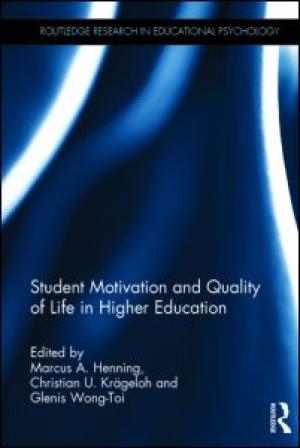
Click Here for Book Review Abstract: Higher education is a high stakes process involving engagement with curricula and often entails coping with the onslaught of assessments and examinations. This process creates a level of intensity that impacts on the student experience in higher education. It is, therefore, important to consider not only the motivational aspects of learning but also quality of life issues, as they have profound effects on students. Quality of life affects the way students interact with their formal education, and has wide-reaching effects on future careers and their ability to coordinate everyday events. Integrating these two concepts, student motivation and quality of life, brings together the explicit elements that underpin learning in the higher education context, creating links between the affective and social aspects of the student life. This synthesis is integral to improving student retention and quality of life and has important ramifications for educationalists, administrators, pastoral care and academic support service personnel, and students themselves. Some highlights of the book include: - Applied Positive Psychology in Higher Education - Internationalisation and Quality of Life: A Taiwanese Perspective - The Computer Assisted Learning for the Mind (CALM) Website: Teaching Skills to Increase Resilience - The Oxford University Peer Support Programme: Addressing the Wellbeing of Students - Higher Education and Student Stress: Reclaiming Light, Liberty and Learning - Improving academic quality of life through attribution- and motivation-focused counselling (From the Publisher)
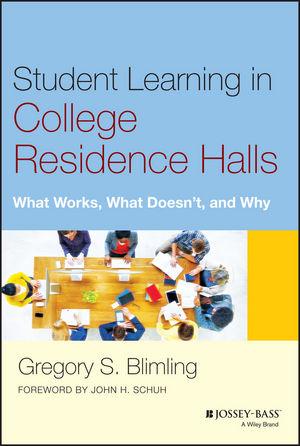
Click Here for Book Review Abstract: Grounded in current research and practical experience, Student Learning in College Residence Halls: What Works, What Doesn't, and Why shows how to structure the peer environment in residence halls to advance student learning. Focusing on the application of student learning principles, the book examines how neurobiological and psychosocial development influences how students learn in residence halls. The book is filled with examples, useful strategies, practical advice, and best practices for building community and shaping residential environments that produce measureable learning outcomes. Readers will find models for a curriculum-based approach to programming and for developing student staff competencies, as well as an analysis of what types of residential experiences influence student learning. An examination of how to assess student learning in residence halls and of the challenges residence halls face provide readers with insight into how to strategically plan for the future of residence halls as learning centers. The lack of recent literature on student learning in college residence halls belies the changes that have taken place. More traditional-age students are enrolled in college than ever before, and universities are building more residence halls to meet the increased demand for student housing. This book addresses these developments, reviews contemporary research, and provides up-to-date advice for creating residence hall environments that achieve educationally purposeful outcomes. • Discover which educational benefits are associated with living in residence halls • Learn how residential environments influence student behavior • Create residence hall environments that produce measureable learning outcomes • Monitor effectiveness with a process of systematic assessment Residence halls are an integral part of the college experience; with the right programs in place they can become dynamic centers of student learning. Student Learning in College Residence Halls is a comprehensive resource for residence hall professionals and others interested in improving students' learning experience. (From the Publisher)
This portion of the website of a UK “registered charity” and promoter of digital technologies in UK education and research, showcases 50 short case studies Investigating students' expectations of the digital environment and enhancing the student digital experience in higher education, organized according to the main challenges they address. 
An early demonstration of the value to teachers (and students) of writing the scholarship of teaching (SoTL) by defining a challenge to classroom learning, a “problem” to be investigated (much as we define a problem for our guild research to address) – in this case: learning goals and student pre-knowledge.
Conservative (fundamentalist, evangelical) Christian students present a general theological worldview that often correlates with significant anxiety. In a foreign setting, the anxiety of conservative students, removed from their supportive infrastructure, can be considerably heightened. This structure of thinking and emotion presents distinctive challenges and opportunities. Drawing upon my work as a clinician and as a religion professor who conducted study abroad programs, I make suggestions for working effectively with conservative Christian students in study abroad contexts. Suggestions include predeparture, in-country, and post-trip strategies. Specific examples of conversations with students are provided to illustrate the challenges and strategies. This essay is published alongside of seven other essays, including a response from John Barbour, comprising a special section of the journal (see Teaching Theology and Religion 18:1, January 2015).
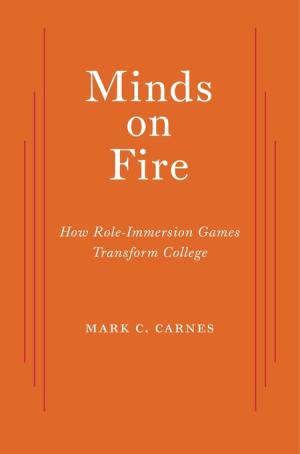
Click Here for Book Review Abstract: Why are so many students intellectually disengaged? Faculty, administrators, and tuition-paying parents have been asking this question for nearly two centuries. And the answer is always more or less the same: students are so deeply absorbed in competitive social play (fraternities, sports, beer pong, World of Warcraft, social media) that they neglect academics. In Minds on Fire, Mark Carnes shows how role-immersion games channel students’ competitive (and sometimes mischievous) impulses into transformative learning experiences. His discussion is based on interviews with scores of students and faculty who have used a pedagogy called Reacting to the Past, which features month-long games set during the French revolution, Galileo’s trial, the partition of India, and dozens of other epochal moments in disciplines ranging from art history to the sciences. These games have spread to over three hundred campuses around the world, where many of their benefits defy expectations. Students think more critically by internalizing alternative selves, and they understand the past better by filtering it through their present. Fierce competition between opposing sides leads to strong community bonds among teammates and develops speaking, writing, leadership, and problem-solving skills. Minds on Fire is a provocative critique of educational reformers who deplored role-playing pedagogies, from Plato to Dewey to Erikson. Carnes also makes an impassioned appeal for pedagogical innovation. At a time when cost-cutting legislators and trustees are increasingly drawn to online learning, Carnes focuses on how bricks-and-mortar institutions of higher education can set young minds on fire. (From the Publisher)
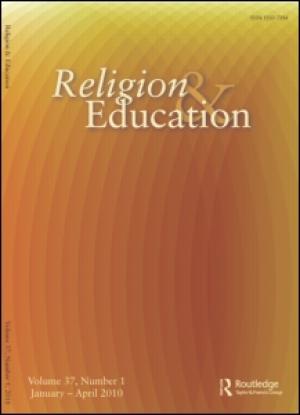
Journal Issue.
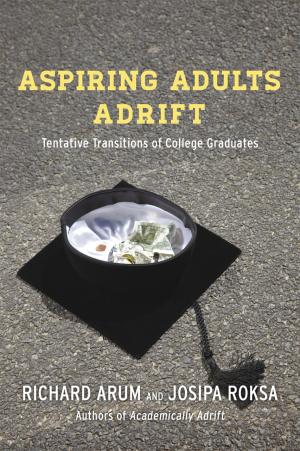
Click Here for Book Review Abstract: Few books have ever made their presence felt on college campuses—and newspaper opinion pages—as quickly and thoroughly as Richard Arum and Josipa Roksa’s 2011 landmark study of undergraduates’ learning, socialization, and study habits, Academically Adrift: Limited Learning on College Campuses. From the moment it was published, one thing was clear: no university could afford to ignore its well-documented and disturbing findings about the failings of undergraduate education. Now Arum and Roksa are back, and their new book follows the same cohort of undergraduates through the rest of their college careers and out into the working world. Built on interviews and detailed surveys of almost a thousand recent college graduates from a diverse range of colleges and universities, Aspiring Adults Adrift reveals a generation facing a difficult transition to adulthood. Recent graduates report trouble finding decent jobs and developing stable romantic relationships, as well as assuming civic and financial responsibility—yet at the same time, they remain surprisingly hopeful and upbeat about their prospects. Analyzing these findings in light of students’ performance on standardized tests of general collegiate skills, selectivity of institutions attended, and choice of major, Arum and Roksa not only map out the current state of a generation too often adrift, but enable us to examine the relationship between college experiences and tentative transitions to adulthood. Sure to be widely discussed, Aspiring Adults Adrift will compel us once again to re-examine the aims, approaches, and achievements of higher education. (From the Publisher)
This essay provides an overview of the distinctive challenges presented to teaching and learning in religious and theological studies by the conditions and characteristics of “millennial” students. While the emerging literature on this generation is far from consistent, it is still instructive and important to engage, as students that are immersed in technology and social networking have different facilities and difficulties that educators would do well to carefully address and critically employ. Teachers in theological and religious studies are distinctly positioned to grapple with such conditions, particularly around the practices of identity formation, media literacy, and embodiment. Attention to the development of such practices engages key issues for both the millennial students and the religious and theological studies teacher: virtual reality, spiritual identity, globalization and violence, critical consumption and ethical creativity, focused and contemplative thinking, and intercultural and interpersonal respect.